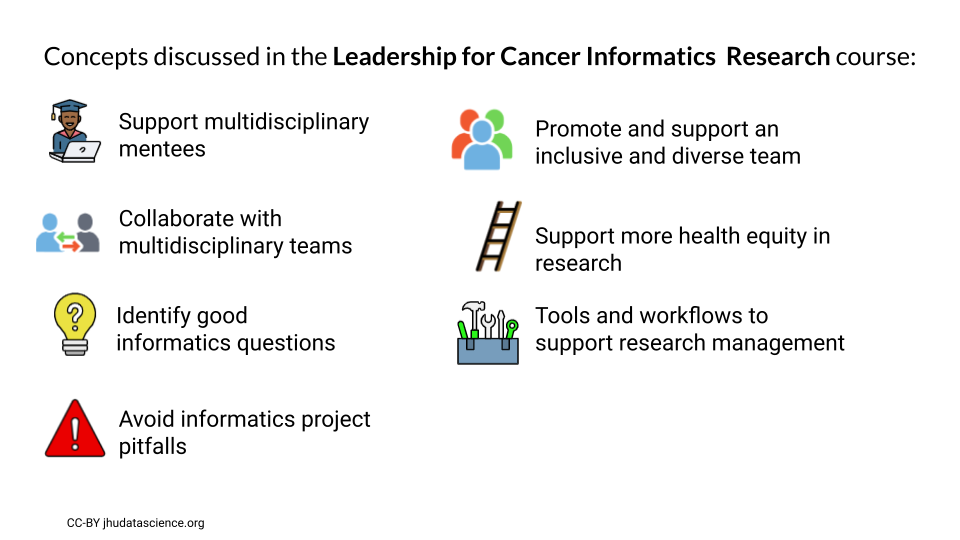
Chapter 1 Introduction

1.1 Motivation
Informatics research often requires multidisciplinary teams. This requires more flexibility to communicate with team members with distinct backgrounds. Furthermore, team members often have different research and career goals. This can present unique challenges in making sure that everyone is on the same page and cohesively working together.
1.2 Target audience
The course is intended for researchers who lead research teams or collaborate with others to perform multidisciplinary work. We have especially aimed the material for those with moderate to no computational experience who may lead or collaborate with informatics experts. However this material is also applicable to informatics experts working with others who have less computational experience.
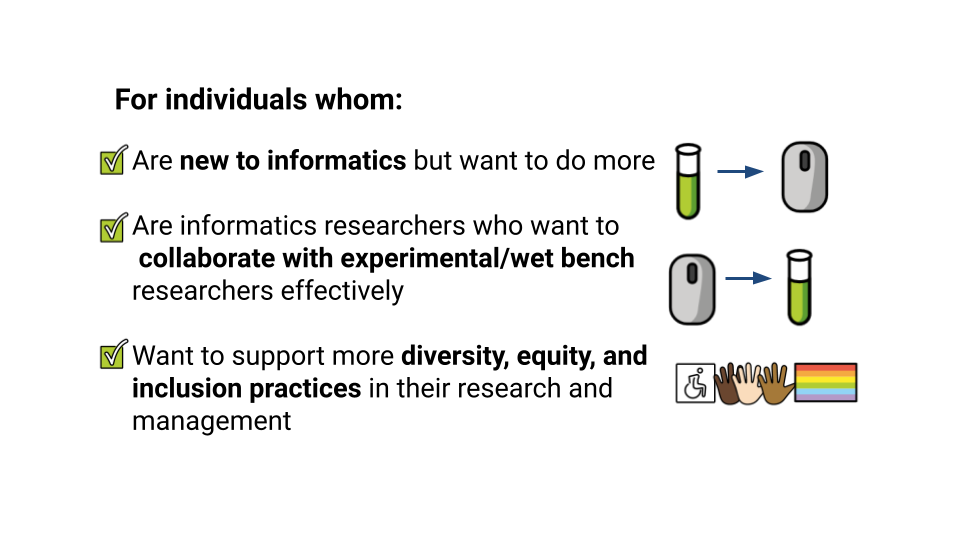
1.4 Curriculum
We will provide you with an awareness for the specific challenges that your informatics collaborators, employees, and mentees might face, as well as ways to mitigate these challenges. By creating a better work environment for your informatics research team, you will ultimately improve the potential impact of your work.
We will also discuss the major pitfalls of informatics research and discuss best practices for performing informatics research correctly and well, so that you can get the most out of your informatics projects.
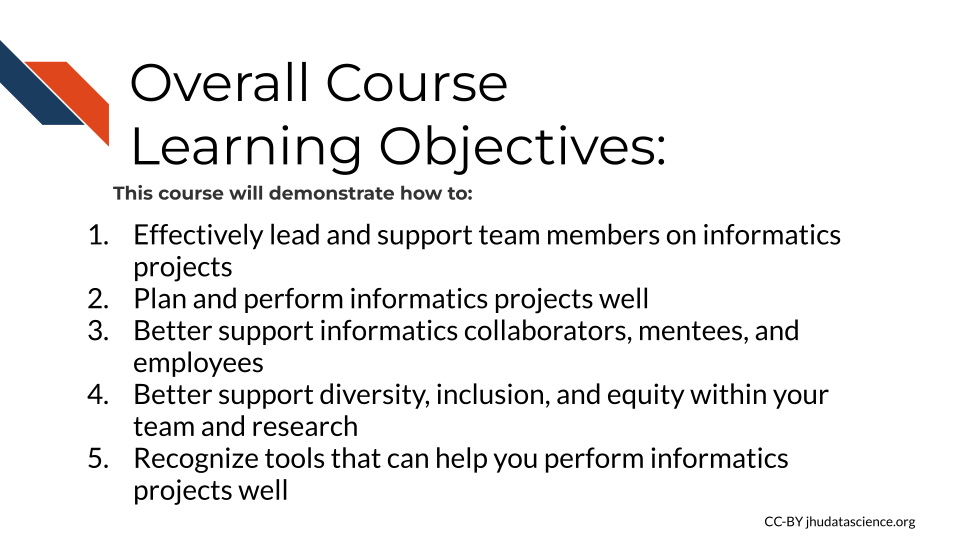
1.5 Informatics teams challenges
Informatics work presents unique challenges due to the fact that it requires multidisciplinary teams.
According to a recent article about this subject:
“Computational biology hinges on mutual respect between scientists from different disciplines, and key elements of respect are understanding a colleague’s particular expertise and motivation.” [way_field_2021]
In this course we hope to give you a bit more of an understanding of the variety of perspectives that your colleagues might have.
1.6 Meet the team!
In order to familiarize you with our guidelines for how to make the most out of your informatics projects we are going to introduce you to some characters of the type of people you may encounter on your journey. We are going to show these characters in situations that may be similar to what you might experience. We are doing this to make the lessons concrete and to try to make the experience more entertaining and experiential.
First our fearless lab leaders who lead informatics research projects. We have Sally who is experienced with working with team members from many disciplines including informatics experts. She helps guide her lab through successful projects all the time.
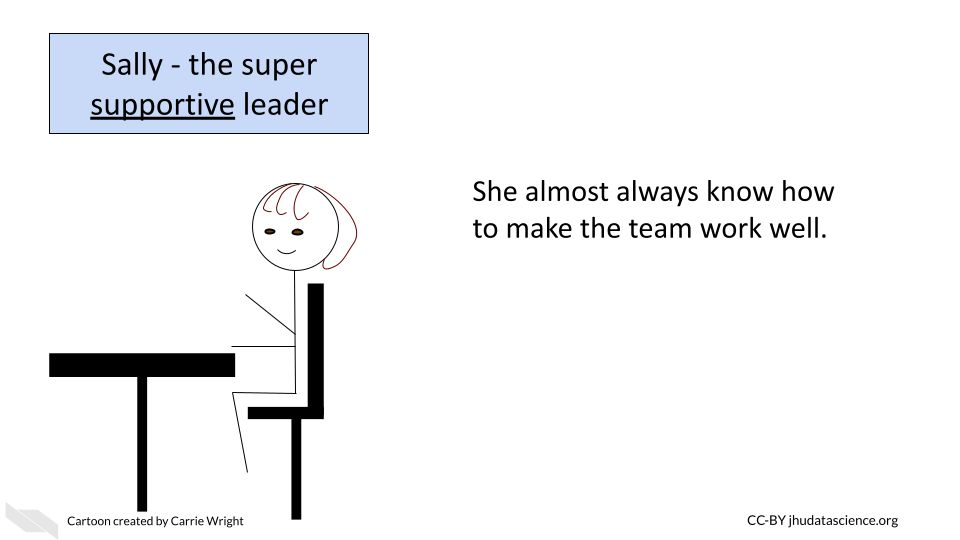
Next, we have Charlie. He is new to informatics research and could learn a bit about how to work with informatics experts more effectively.

Now we have our informaticists. First is Jack, who is often forgotten and misunderstood by his lab leader. His lab leader does not really know what he does, how long his work takes, or how to support Jack and his career goals. This is unfortunately impeding Jack from achieving the career that he could have and from producing the good work that he is capable of.

We also have Hilda, an example of a happy informaticist. She feels supported in all the ways that she needs, allowing her to be as productive and helpful as possible.
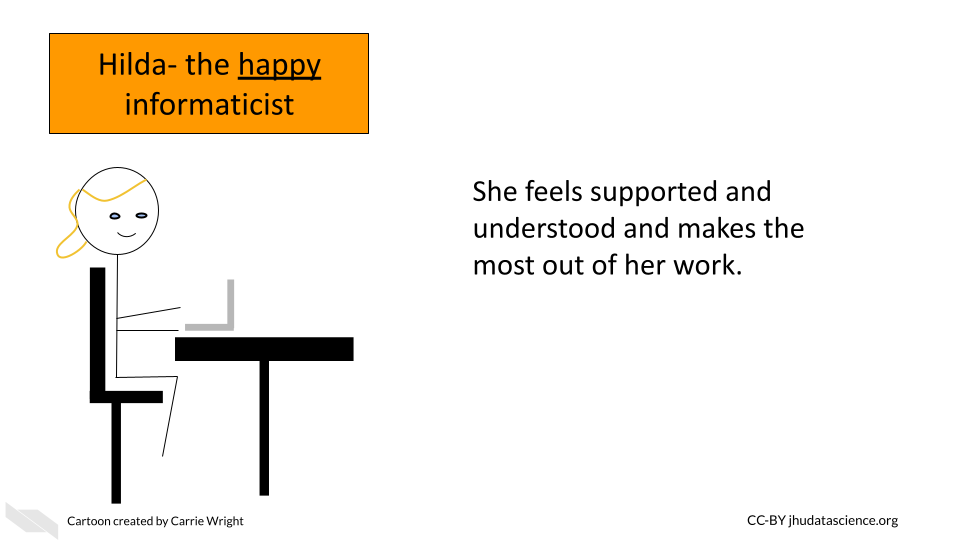
Here is Francis the frustrated collaborator. She often feels misunderstood by her colleagues. They seem to think her work is easy and should be done faster and they often don’t discuss important aspects about the project until she needs to redo work. Thus, she is reasonably frustrated.
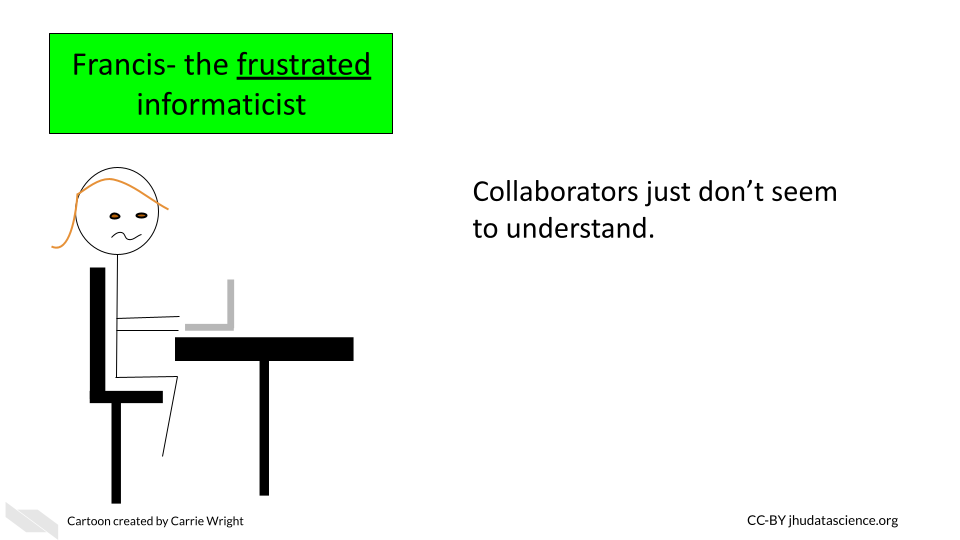
Finally we have Harry, the helpful collaborator. He clearly communicates with his collaborators and is well organized! He teaches is collaborators about informatics and they teach him about their knowledge. He and his collaborators have very productive projects.

We will now describe some guidelines for how to be an effective leader, collaborator, and mentor on informatics projects so that you can be more like Sally with mentees and employees like Hilda and collaborators like Harry.
Keep in mind that while our cartoons often exaggerate situations to make them more comical, more subtle situations can still be very detrimental to your research teammates.
